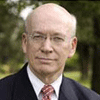 From time to time every faith community is faced with the challenge of rethinking, reformulating and re-articulating its core beliefs, values and practices. This is not easy work, but it is essential so that each generation can respond to contemporary circumstances, challenges and opportunities. For Wesleyan holiness faith communities, of which The Salvation Army is one, part of this challenge is passing on an understanding of our doctrine of holiness to the next generation.
From time to time every faith community is faced with the challenge of rethinking, reformulating and re-articulating its core beliefs, values and practices. This is not easy work, but it is essential so that each generation can respond to contemporary circumstances, challenges and opportunities. For Wesleyan holiness faith communities, of which The Salvation Army is one, part of this challenge is passing on an understanding of our doctrine of holiness to the next generation.
The present-day status of holiness is a far departure from our past. We are challenged because so many Christians pay such little attention and interest to the idea of holiness anymore. Holiness is rarely taught, preached or pursued. Many even view it in a negative light. This may in part be due to its false identification with perfectionism, legalism, judgmentalism and introspection.
Holiness is seen as optional—something for a few saints; restrictive and repressive—reflected in long lists of behavioural prohibitions; individualistic and unattainable—for most a matter of superhuman striving. It is viewed by many as unimportant.
Tragically, what is commonly considered important for Christians is “getting saved” (from sin), going to Heaven and in the meantime only leading a good, decent life. At best, and for a few, holiness is seen as a possible mountaintop experience attained only at spiritual retreats, not as a way of life. Most see it as socially irrelevant and not necessary to a life of ministry and mission.
The pursuit of holiness has been the centrepiece and orienting principle of Wesleyan holiness faith communities
The dwindling few who do grasp its importance remain divided in their understanding of how holiness is attained. Some see it as process (growth in grace) and others as crisis (a cleansing, second work of grace). For most, a great shroud of apathy cloaks and hides the idea of holiness as a viable, available and necessary reality of the Christian faith journey.
The Idea of Holiness
Historically, the pursuit of holiness has been the centrepiece and orienting principle of Wesleyan holiness faith communities. “Be holy as I am holy” echoes in our collective heart and mind as a people who, like Israel, are by our own choice “set apart” for God.
The foundation of our understanding and vision of holiness remains scriptural. Holiness and related terms appear in Scripture over 1,000 times (800 in the Old Testament, 300 in the New Testament). In both Old and New Testaments, holiness is the quality of God's character that his people are to show in their lives as they are filled with the Holy Spirit.
For this reason, our Salvation Army understanding of holiness does not place us on the fringe of Christian belief like an obscure sect. Rather, we are in the mainstream of Christian orthodoxy. At the very core of Scripture's portrayal of God and his Church, we find the idea of holiness.
Holiness is not an option. We may like to think it is, and many live like it is. Those who treat it as such may do so because they think it is an individual, private matter. They may hope that the Lord might do a work of holiness in someone else, but leave them alone. They might even wish that God would especially work on those whose behaviours are particularly bothersome, obnoxious or disagreeable.
However, in our theological orthodoxy, we know that holiness is for everyone, at all times and everywhere, and as such it is not only a private matter. Holiness is very much a social matter. Its expressions are always worked out in the faithful fabric of social life in the community of believers and in the larger world.
Part of the “Big Idea” of Salvation
In more traditional language, holiness is a major part of the ordo salutis—the way of salvation. Here we understand salvation to be a big idea. It is not restricted to merely that point in time when we come to faith, accepting Jesus Christ as Saviour, repenting of our sins and receiving God's forgiveness.
Rather, it is also that ongoing therapeutic work of God by his prevenient grace, by which we are being restored to Christ's likeness. We sing about the ordo salutis when we sing “Jesus is mighty to save … from the uttermost to the uttermost” (SASB 249).
God commands us to “be holy” (see Leviticus 11:44-45, 1 Peter 1:13-16). It is our natural course of development in the presence of a holy God. We are predestined to holiness. It has always been and remains our destiny. It is fulfilled to the extent that we are faithful to Christ's words in John 15, when he repeatedly says: “Abide in me.”
In our Lord's great imagination, he created us in his image. Though that image was marred and stained through the Fall, God still plans to restore us to that which he imagined from the very beginning. His intention is that we would be like Jesus, through exposures to his grace and to life-changing encounters by which we are filled with the Holy Spirit—in other words, that we would be holy.
 Jonathan Raymond is the President of Trinity Western University. A cross-cultural social psychologist, he earned his BA in Psychology from Asbury College and his MA in Social Psychology (1972) and PhD in Cross-Cultural Psychology (1975) both from the University of Kentucky. Dr. Raymond served as President and Vice Chancellor at The Salvation Army's Booth College (1999-2006) in Winnipeg, Manitoba. Dr. Raymond and his wife, Irene, have two children.
Jonathan Raymond is the President of Trinity Western University. A cross-cultural social psychologist, he earned his BA in Psychology from Asbury College and his MA in Social Psychology (1972) and PhD in Cross-Cultural Psychology (1975) both from the University of Kentucky. Dr. Raymond served as President and Vice Chancellor at The Salvation Army's Booth College (1999-2006) in Winnipeg, Manitoba. Dr. Raymond and his wife, Irene, have two children.









Rosemary Phillips